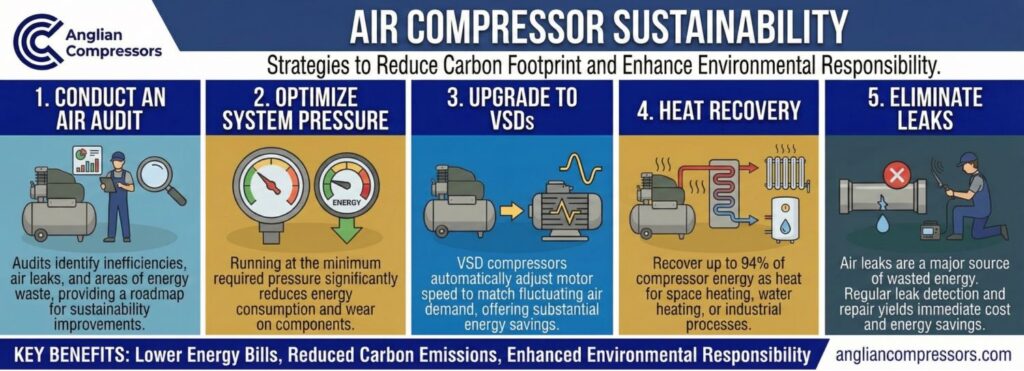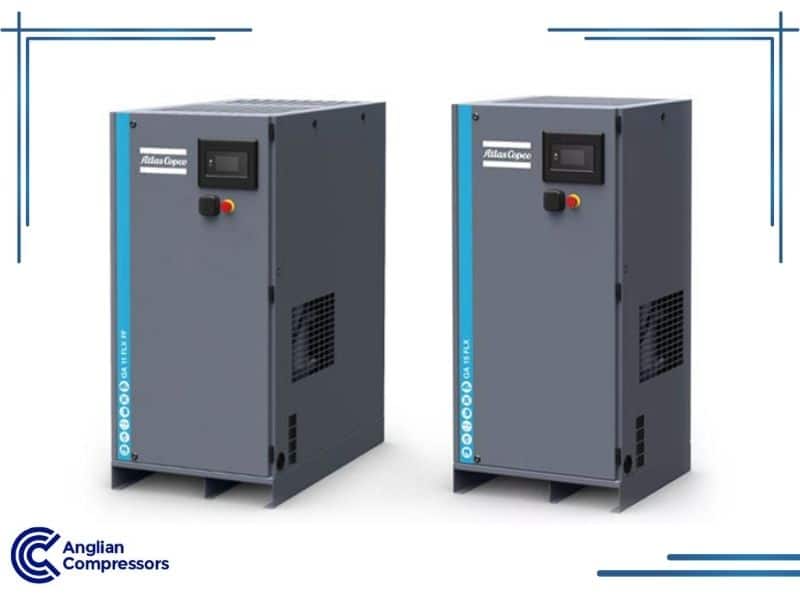Air Compressor Sustainability
Sustainability is important with compressed air systems. This is because a compressor system uses up to 30 per cent of a facility’s total power consumption.
Companies must lower their carbon footprint to meet or exceed stated ESG goals. This requires operating technology systems in a more energy-efficient manner. This approach supports initiatives to meet existing and future government regulations.
This blog post examines why better air system sustainability is necessary and how to approach it.
The Environmental Footprint of Air Compressors
Air compressor sustainability aims to meet green production goals, regardless of total air demand.
Traditional compressors are wasteful. Energy is lost because of air leaks and heat losses.
Oil-lubricated compressors require oil for smooth operations. While it reduces wear and tear on the machinery, it potentially adds oil contamination to the environment.
Indirect carbon emissions are released as a byproduct of a higher electricity requirement. These originate from the power plant.
Addressing the above concerns can reduce wasted energy, create energy savings, and create a more sustainable future.

Technology Innovations Driving Sustainability
The drive toward greener air production is found in technology.
Variable speed drive (VSD) air compressors operate flexibly, with selectable air flow, pressure, and other parameters. They replace single-speed compressors lacking sufficient flexibility to rapidly adjust to changing air demands. According to Atlas Copco, their latest GA VSD compressor reduces energy bills by as much as 60% while reducing CO₂ emissions.
Oil-free compressors are popular in certain industries, including food and beverages and pharmaceuticals. Using a compressor that does not require oil lubrication removes potential hydrocarbon contamination. Waste products are easier to clean and safely dispose of while adhering to the ISO 8573-1 standard and local government regulations.
Smart controls and connectivity monitor real-time performance. The Atlas Copco SMARTLINK dashboard updates managers, offers remote access, and automates operations to reduce human interactions. Alerting systems based on sensory data allow for planned predictive maintenance, reducing unexpected maintenance shutdowns.
Heat recovery systems capture waste heat generated by the air compression process and reduce overall energy consumption. The heat is used for space heating in colder months and water heating throughout the year. Implementation of these eco-friendly practices lowers energy bills.

Energy Efficiency: The Key to Greener Operations
The initial investment in an energy-efficient air compressor is considerable. However, energy-related expenses comprise up to 80 per cent of the total cost of ownership. Therefore, it is worth taking steps to use less energy.
Air leaks are no minor issue either. Tiny holes in the air equipment from wear and tear cause air losses of up to 30 per cent. Compressors must operate longer to compensate for leaks, increasing energy expenditures.
Smart compressors include numerous sensors providing continuous feedback about energy usage. The smallest of inefficiencies are immediately identified. Operations are optimised accordingly.
The ISO 50001 certification guides how companies can manage their energy usage. This helps cut costs and reduce atmospheric emissions.
To learn how to make your operation greener, talk with our team at Anglian Compressors, a Branch of Atlas Copco Compressors.
Choosing the Right Air Compressor for Sustainability
Using oil-free compressors resolves lubricant disposal issues. With oil-fed compressors, a mix of water and oil, known as condensate, requires filtering and processing. However, oil-free compressors cut waste product issues to an absolute minimum.
Right-sizing your eco-friendly air compressors significantly reduces energy waste. Avoid owning a smaller compressor as a workhorse expected to run continually at near maximum capacity. Conversely, using an oversized compressor is wasteful because of the extra energy required.
Take a holistic, lifecycle cost approach to sustainability. At least 4 times more is spent on electricity than the price of a typical compressor. Smart acquisitions reduce future operating costs.
Smaller portable compressors now offer energy-efficient motors and eco modes for operations requiring greater portability. These aim to manage changing production needs with moderated electricity consumption.
Smart Maintenance Practices That Save Energy
Smart maintenance is necessary to keep systems operating efficiently. While modern compressors need less TLC than older machines, they still require some.
Preventative maintenance is necessary to run more smoothly and reduce the likelihood of unplanned downtime. This includes replacing worn parts before they fail and ensuring sufficient lubrication.
Predictive analytics, like smart sensors and timely analysis, confirm which parts require replacing, removing any guesswork. This avoids internal damage from broken components or major downtime.
Filter replacement. A clogged filter increases pressure drops. More energy is required to maintain fixed pressure levels. Filter replacements are simple to complete.
Monitor remotely. Alerts are automatically triggered when system inefficiencies are noted. Managers can remotely monitor operations and make adjustments while away from the facility. This results in more efficient, greener operations.
Do you want to learn more about improving air system maintenance? Get in touch with our experts at Anglian Compressors, a Branch of Atlas Copco Compressors.
Green Installation and Infrastructure Considerations
The installation of an air compressor system and its supporting infrastructure are important considerations.
Optimising the air system layout improves efficiency compared to a poorly planned installation. When doing so, operators avoid major pressure drops.
Piping networks distribute compressed air through the facility. Using insulated pipes prevents heat loss. Proper sizing maintains flow efficiency; longer pipe lengths require wider diameters to permit the same airflow rates.
Heat recovery kits are an excellent addition to an air system. They capture waste heat produced by air compression. This is reused elsewhere, reducing heating expenditures.
Well-situated ventilation and ambient temperature control have less impact on the compressor. Poor ventilation leads to overheating and potential damage. Hotter ambient air or more humidity requires proper management.
Tips for Making Your Air Compressor System More Eco-Friendly
Below are some tips for more eco-friendly air systems:
- Prevent idle energy use by powering down compressors and associated machinery out of hours.
- Find air leaks using ultrasonic detectors, then repair them.
- Switch to on-site nitrogen production. This reduces emissions from transportation and storage requirements.
- Regulate ambient temperature levels to keep them optimal. Avoid the pressure increases necessary because of unresolved air leaks.
Conclusion: Sustainability is Good for Business
Energy-efficient systems are required to meet sustainability initiatives. Smart air compressors, like a VSD compressor model, make going green easier. They help lower energy consumption and costs, and reduce the carbon footprint.
Sustainable upgrades have environmental benefits and support ESG frameworks and the latest environmental regulations. Older compressors offer more limited upgrade options. Newer compressors are more energy efficient, require less regular maintenance, and have a reduced total cost of ownership.
A long-term perspective is required to run more sustainably. This ensures your business operates robustly while adhering to current and future environmental regulations.

